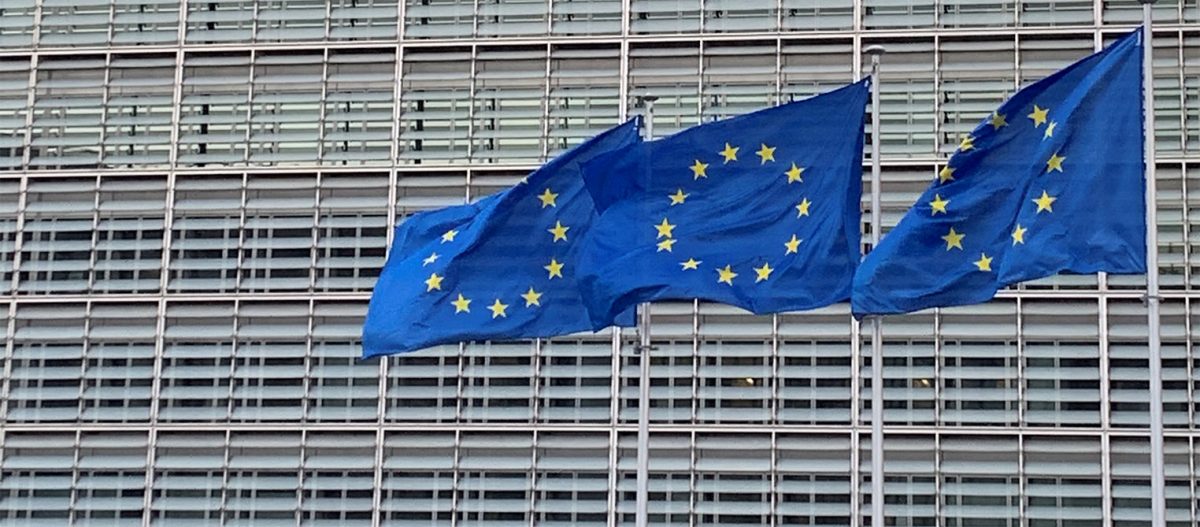The saga of the next EU seven year budget (MFF) and recovery fund (NGEU) goes on. As explained here last week, the agreement between the European Parliament and the Council (the member states) could requires unanimity so could be vetoed – and today it was – by Hungary and Poland.
This is already being explained in the anti-European UK press and ‘the end the EU as we know it’. It will surprise few reading this to learn that this is not the case. In practice Poland and Hungary are likely either to give in later this week, possibly with some kind of fig leaf in place, or they could grab their shovels and continue digging themselves into a deeper hole.
First though, what just happened and what could happen next?
Decisions, decisions and non-decisions
Today’s meeting of COREPER – that is the hideous dinosaur-sounding acronym for the member states (Council) meeting at ambassador (permanent representative) level – approved by qualified majority the Rule of Law Conditionality Mechanism. This allows the European Union, through a series of difficult but workable mechanisms, can take action against member states who are failing to observe the rule of law in respect of democracy, individual rights, freedom of expression or media ownership. In other words this prevents a member state taking advantage of the redistributive (cohesion and regional development) funding of the EU while violating the rules of the club. The mechanism applies to all EU expenditure and is not limited to the 2021-27 MFF.
COREPER then considered the content of the MFF and NGEU. Some questions were raised about the MFF/NGEU by two member states but the content was not blocked as such. This allows Viktor Orbán to argue that he didn’t actually block the spending in his own country. However the MFF has to be paid for and a series of new and amended ‘own resources’ (plastics tax, VAT adjustments, etc) were proposed in the new agreement. Poland and Hungary used their veto on the Own Resources Decision and thus blocked the MFF without voting against the content – from which of course they benefit very substantially.
What does this mean?
EU heads of government meet later this week and that could change things, of which more below, but even if nothing happens at the virtual Council then EU does not grind to a halt.
If a new MFF is not approved then the last year of the old MFF is rolled forward to keep the show on the road. For tactical and practical reasons the 2021 EU Budget is within the parameters of variation allowed by the last MFF – certainly with enough wiggle room. This would have been necessary to have kept things moving had there been no agreement on a new MFF or if ratification was delayed. The Rule of Law mechanism applies, however, to all EU spending – so cohesion and regional development spending within the 2021 EU Budget from which Hungary and Poland are the leading beneficiaries could immediately become subject to sanction. The EU could roll forward its MFF without substantial damage – because, of course, it was an EU28 MFF – that protects a lot of the increases made in the new around some of the programmes in the new EU27 MFF and provides additional flexibility in many areas. The payments and own resources would remain unchanged – inconvenient but hardly a disaster.
The MFF doesn’t cover then NGEU funds, but if the rest of the EU wants to proceed with the recovery fund it can do so with Hungary and Poland excluded. It would be possible to package what has been agreed into a separate intergovernmental treaty to be agreed by ‘the coalition of the willing’ – be that the other 25 EU states. Oddly enough this was the likely solution flagged up when Boris Johnson was threatening to block the new MFF had Britain not managed to leave the EU at the end of January. This would, of course, mean that Poland and Hungary would not benefit from NGEU and would still have their other funds threatened by their failure to respect the rule of law.
In practice, things need not necessarily go that far. EU leaders meet in a virtual summit later this week, which provides the opportunity either to craft Mr Orbán’s fig leaf or to call his bluff and begin preparations of a separate treaty with financing measures agreed, potentially, at Eurozone level. Reports that Mr Orbán has won anything are decidedly premature.
What should happen?
If this is a crisis of any sort – and remember the EU has crises as a matter of routine – then it is a very timely crisis. Mr Orbán ‘s may well find that his actions have strengthened the resolve of the EU members which have the real clout.
It has taken far too long to get to the point where the appalling actions of Orbán in Hungary and PiS (Law and Justice) in Poland are called out. Member states simply cannot take the benefits of club membership and not abide by the rules of the club. Those rules are quite clear – the EU is a club of sovereign member states who are free to do as they please, but who agree to play by a set of rules for mutual benefit. Under those rules the protection of democracy is about more than simply having elections. It is about judicial independence, freedom of thought and expression, the separation of the state and the media and respect for the rights of individual to live their lives as they choose.
Exceptions, structures and opt-outs can be devised for specific circumstances – for which there is a cost – those who are not members of the Euro opt out of influencing the direction of the currency and bear the exchange rate risk in their budget contributions, for example. However, those who say that the situation of Poland and Hungary is analogous to that of the UK are simply wrong. The UK, as an EU member played by the rules and influenced decision making very effectively but chose to leave and – strangely enough – is finding that having its cake and eating it is a delusion. There is also a plain and simple fact here – Poland and Hungary are the largest and proportionally largest recipient states. That does them no favours and those such as Sweden and the Netherlands who have been the awkward squad on spending in the absence of the UK, may prove only too willing to support tough action.
The EU needs to resolve this situation decisively in favour of its founding principles – it has already waited too long. The idea of Europe is about the protection of freedom or it is nothing – and freedom is under existential threat in both Hungary and Poland. The German Presidency has a duty to ensure that the alternative route to the recovery package is made plain. If possible the alternative should incorporating the aspects of the MFF that cannot otherwise be progressed. EU leaders should spell out at the earliest opportunity that they will go ahead without Poland and Hungary and that they will use the Rule of Law mechanism to protect the EU budget from abuse. There are plenty of mechanisms available to the EU 25, the one essential ingredient that must now be demonstrated is political will. This is a crisis EU leaders should relish.
To be continued …

